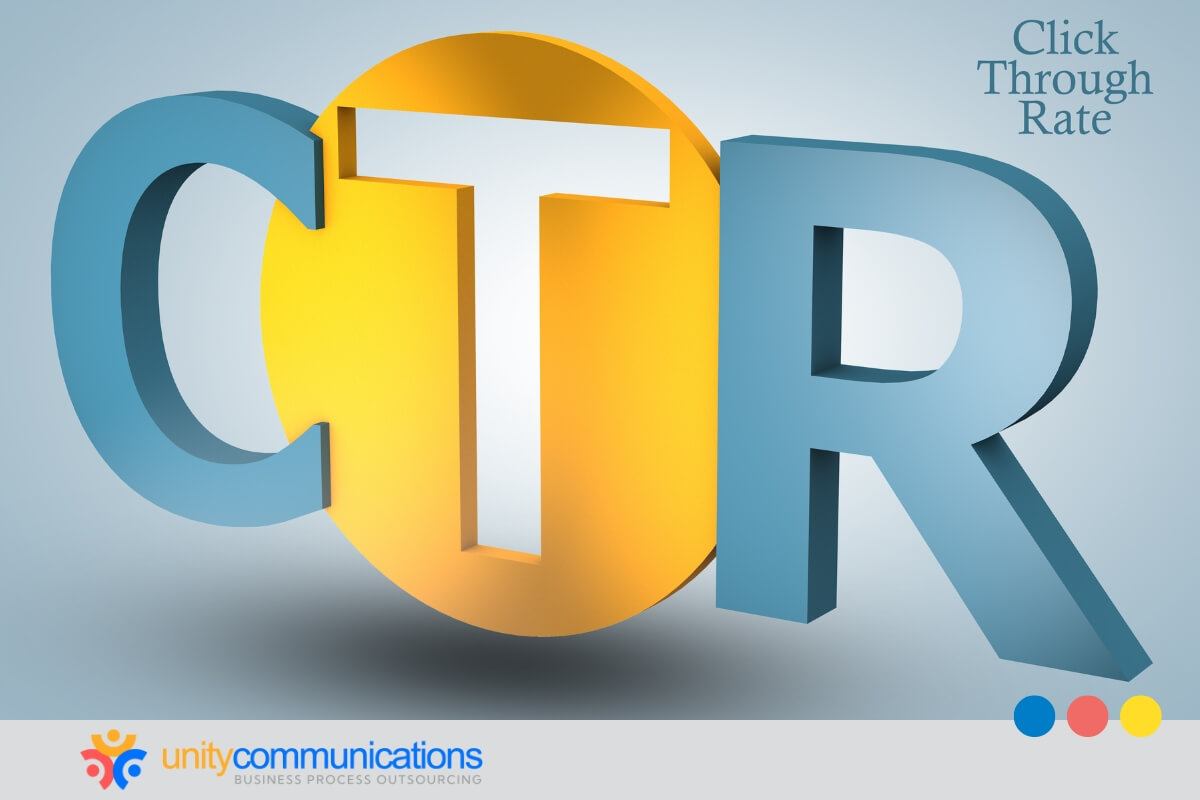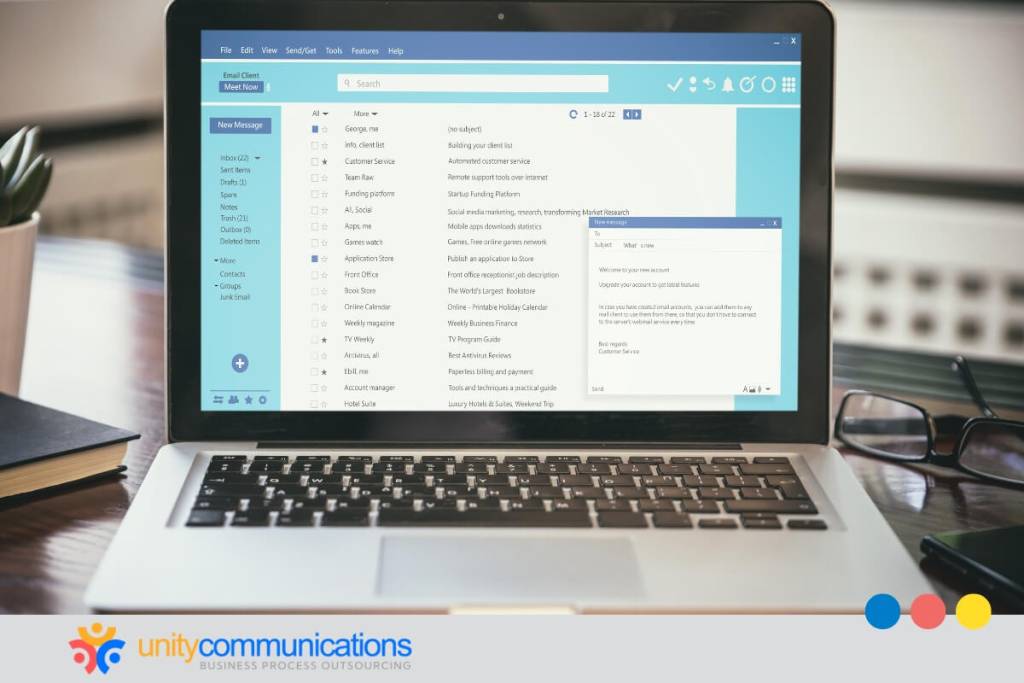IN THIS ARTICLE
Table of Contents
Email remains a powerful marketing tool, yet managing campaigns can often be labor-intensive and time-consuming. Business process outsourcing (BPO) is a viable strategy for managing email marketing programs more efficiently and effectively.
BPO can help streamline efforts, allowing businesses to focus on core activities. To maximize this solution, choosing the right email outsourcing is key. Continue reading to learn tips for making informed decisions when outsourcing email campaigns.
Understanding email outsourcing

What is BPO, and how can businesses leverage it for email marketing? BPO involves delegating specific business functions to external service providers to increase efficiency, promote cost savings, and improve focus on core operations.
The functions of BPO typically include customer support, data management, and content services. In email marketing, businesses can outsource tasks such as campaign management, list segmentation, automation, and performance tracking.
Assessing business needs for email outsourcing
Businesses must carefully evaluate their specific needs before outsourcing email marketing to ensure they find a capable partner that can support their operations.
The following factors can inform your outsourcing decision:
- Campaign frequency: How often do you plan to send marketing emails (e.g., daily, weekly, monthly)? About 88% of people access their emails daily, and you must take this into account.
- Target audience: What type of customers or demographics are you trying to reach?
- Email design requirement: Do you need custom, highly designed emails or more straightforward, template-based campaigns?
- Automation needs: Are you seeking advanced automation, such as drip campaigns or triggered emails? You might consider this strategy as automated emails generated 41% of all email orders despite making up just 2% of total emails sent in 2023.
- Content creation: Do you have an in-house team for content creation, or will the potential outsourcing partner need to handle it?
- Analytics and reporting: How important is tracking and analyzing campaign performance for your business?
- Mobile email marketing: Do you plan to expand your mobile marketing using emails?
- Budget: What is your budget for email marketing services, and how does outsourcing align with it?
Identifying goals for outsourced email marketing
When outsourcing email marketing, businesses must clearly define goals to align them with business objectives and support long-term success. Setting clear goals can also help measure success and evaluate the BPO partner’s effectiveness.
Here are ways businesses can identify their goals for outsourcing email support:
- Increase engagement. Focus on improving open rates, click-through rates (CTR), and email engagement.
- Expand reach. Aim to grow the email list and reach a broader or more specific audience.
- Boost conversions. Set goals around turning email recipients into paying or existing customers or achieving other desired actions.
- Enhance personalization. Prioritize customizing email content to create more personalized experiences for recipients.
- Improve efficiency. Set objectives for reducing the time and resources spent on email campaign management.
Researching potential service providers
Researching potential email support service providers for your campaigns is essential to find a partner that aligns with your business goals, budget, and brand values. Here are research best practices:
- Review client testimonials and case studies. Seek feedback from previous clients to assess the provider’s success in delivering results.
- Evaluate service offerings. Ensure the provider offers the specific email marketing services the company requires, such as marketing automation, list management, or analytics.
- Assess technical capabilities. Confirm that the provider uses up-to-date tools and technology to manage campaigns efficiently.
- Request a trial or pilot project. Test their services with a smaller campaign to assess performance before committing long-term.
Evaluating provider expertise and experiences

Assessing a provider’s expertise and experience is critical, as the BPO partner must be able to deliver effective email marketing campaigns and drive measurable results. Businesses can gauge whether a potential partner is a good fit by reviewing their background, success stories, and industry knowledge.
Here are strategies for evaluating expertise and experiences to help choose an outsourcing partner:
- Review industry experience. Look for providers with experience in the industry to ensure they understand the target audience and challenges.
- Examine past campaigns. Assess the results of previous email marketing campaigns and whether they have managed to evaluate their effectiveness.
- Check certifications and credentials. Confirm if the provider holds any relevant certifications or qualifications demonstrating their expertise.
- Ask for case studies. Request detailed case studies that showcase their ability to meet client goals and deliver measurable results.
- Inquire about their team. Understand the skills and experience of the team members who will work on campaigns.
Reviewing service offerings and pricing models
In choosing the right email outsourcing partner, checking a provider’s service offerings and pricing helps determine whether they align with the business’s specific email marketing needs and budget. Understanding what services are included and how they charge can inform decisions.
Review service offerings and pricing models with these techniques:
- Identify core services. Choose a provider that offers essential services such as list management, email automation, analytics, and design.
- Understand customization options. Check if they offer tailored solutions that cater to specific marketing objectives.
- Evaluate pricing transparency. Look for clear pricing structures with no hidden fees, and understand how they charge (per campaign, monthly, etc.).
- Compare packages. Compare different pricing packages to see which one offers the best value.
- Assess scalability. Know whether the provider’s pricing model can scale as the business and email marketing needs grow.
Ensuring compatibility with your business tools and systems
Compatibility with business tools and systems promotes seamless integration and data flow. A provider who can work with existing software and platforms can make the transition smoother, the collaboration more effective, and the email marketing strategy more impactful.
These strategies can help businesses guarantee the compatibility of provider’s tools and systems for email marketing.
- Check integration capabilities. Confirm that the provider can integrate with customer relationship management (CRM) systems, email platforms, and other marketing tools.
- Ensure data synchronization. Verify if the provider can sync data between systems to maintain accurate and up-to-date customer information.
- Review API availability. Look for providers that offer API access for custom integrations or future scalability.
- Test compatibility with reporting tools. Assess if their system can work with the preferred analytics and reporting tools.
- Verify automation integration. Check that its email automation tools can integrate with the workflow and other business processes.
Establishing clear communication and reporting expectations
Clear communication and reporting must also be considered when choosing the right email outsourcing partner. Effective communication helps avoid misunderstandings, while consistent reporting allows businesses to track progress and assess the success of campaigns.
Here are ways companies can collaborate and communicate with a prospective BPO partner:
- Define reporting frequency. Set clear expectations on how often they expect performance reports, such as weekly, monthly, or after each campaign.
- Clarify communication channels. Agree on the preferred communication channels (email, calls, project management tools) and response times for different types of queries.
- Specify key metrics. Identify the key performance indicators (KPIs) they want to track, such as open rates, CTR, and conversion rates.
- Set up regular check-ins. Schedule regular meetings to review campaign performance, discuss strategies, and address concerns.
- Agree on actionable insights. Determine whether the reports include actionable insights and recommendations for improving future campaigns.
Setting measurable success metrics and goals

Defining clear, quantifiable metrics can evaluate whether the campaigns meet expectations and deliver results. The prospective BPO partner must agree to your metrics and confirm they can support your goals.
Here are essential campaign metrics businesses should focus on:
- Open rates measure the percentage of recipients who open emails to gauge the effectiveness of subject lines.
- CTRs track the number of clicks on links within emails to assess engagement levels. The average CTR across industries is 2.62%, which can guide goals.
- Conversion rates monitor the percentage of email recipients who take the desired action, such as purchasing or signing up.
- Bounce rates monitor the number of undelivered emails to ensure list quality and deliverability.
- Unsubscribe rates measure the percentage of recipients who opt out to evaluate the relevance and appeal of the content.
- Revenue per email tracks the direct revenue generated from email campaigns to assess their financial impact.
Analyzing reviews and testimonials from other clients
Client reviews and testimonials help evaluate an email outsourcing provider’s reliability and performance, including the team’s strengths and potential shortcomings.
Here are helpful strategies when choosing the right email outsourcing firm:
- Check online reviews. Look for reviews on platforms such as Google, Trustpilot, or industry-specific forums to get an unbiased perspective.
- Request client references. Ask the provider for references from past clients with similar needs and expectations.
- Look for case studies. Seek detailed case studies to understand how the provider has helped other businesses achieve their goals.
- Evaluate consistency. To assess the team’s performance, look for recurring themes or trends in the feedback, whether positive or negative.
- Analyze client retention. Consider how long clients have worked with the provider, as long-term partnerships often indicate satisfaction.
Finalizing contracts and integration plans with chosen providers
A well-structured contract and clear integration plan foster a smooth collaboration. It aligns both parties on expectations, responsibilities, and deliverables.
The following strategies can help businesses finalize contracts and integration plans:
- Define the scope of work. Clearly outline the tasks, responsibilities, and deliverables expected from the provider.
- Establish timelines and deadlines. Set specific milestones and deadlines for campaign launches, reporting, and updates.
- Agree on pricing and payment terms. Ensure that the pricing structure is cost-effective and transparent, with defined terms for payment schedules and any additional costs.
- Ensure legal protection. Include clauses for confidentiality, data security, and non-disclosure agreements to protect both parties.
- Develop an integration plan. Outline the steps for integrating the provider’s systems with existing tools and platforms.
- Set performance benchmarks. Establish measurable performance goals to evaluate the provider’s success over time.
The bottom line
Outsourcing email marketing can improve efficiency and campaign performance. By evaluating business needs, researching potential providers, and setting clear goals, businesses can find the right partner for success.
With the right tools, clear communication, and measurable metrics, email outsourcing partnerships can transform marketing efforts. Optimize your strategy today! Let’s connect.





